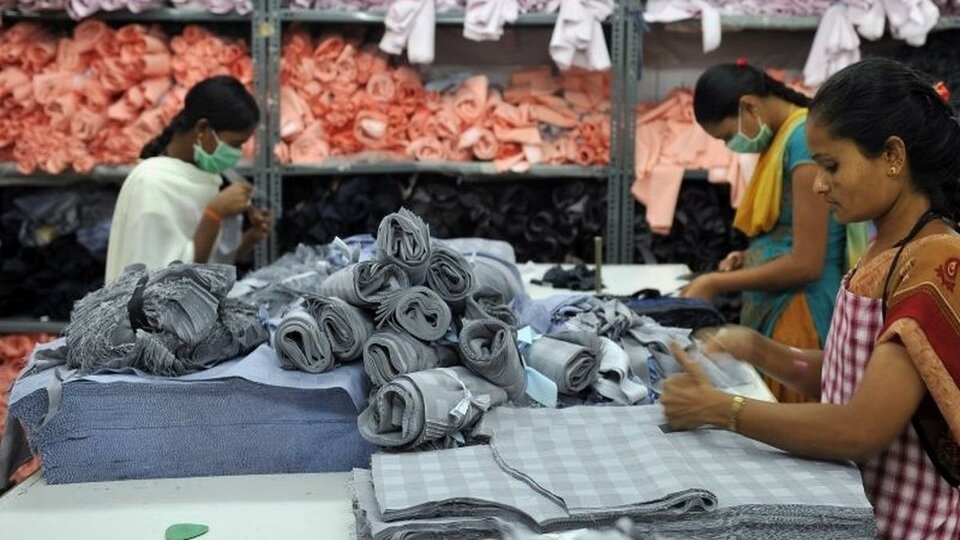Nearly 4,000 garment and textile workers employed with Himatsingka Linens company, have quit their jobs as a demonstration of protest in Hassan district in the Indian state of Karnataka. Following a protest by the workers for payment of pending wages on July 23, 15 workers were arrested by police on July 24. The police reportedly resorted to baton charge, teargas, and opened fire to disrupt the protest. The workers said that they felt intimidated and decided to leave the company in search of other jobs.
Most of the total 5,000 workers employed in the company are migrant workers, hailing from some of the poorest states in India, like Bihar, Uttar Pradesh and Orissa. At Himatsingka Linens company, the workers were not paid the minimum wage and were subjected to physical assault. The garment and textile workers in Karnataka have long been struggling to get an increase in the minimum wage.
“Unlike what the mainstream media has been projecting, these protests were not only against a physical assault by the employer,” said Pratibha, a member of Garment and Textile Workers Union (GATWU).
The company is based in a Special Economic Zone (SEZ), where business and trade laws differ from the rest of the country. Jaivir Singh, a professor of economics at Jawaharlal Nehru University (JNU), in a paper titled Labor Law and Special Economic Zones in India, wrote, “labor laws are excluded from the purview of Section 49 of the SEZ Act of 2005…which empowers individual states to modify the SEZ Act and other related laws and regulations that enable the delivery of fiscal benefits envisioned by the SEZ policy.”
“In relation to labor, it is stated that such powers of modification are not applicable to matters relating to trade unions, industrial and labor disputes, welfare of labor including conditions of work, provident funds, employers’ liability, workmen’s compensation, invalidity and old age pensions and maternity benefits applicable in any Special Economic Zones,” he wrote in the paper.
In a statement, the union said that Himatsingka Linens has a history of utilizing this luxury of not falling under the purview of labor laws that are applicable in non-SEZs. In February 2018, the Siddaramaiah-led Indian National Congress government in the State had issued a draft notification, revising the wage. The notification had promised an increase of wages from INR 8,500 (USD 124) to INR 12,250 (USD 178) per month.
However, on March 24 last year, the state government suddenly withdrew the notification. The withdrawal, according to the GATWU, came about after several meetings were held by the government with the managerial executives of the garment sector in the State. Himatsinghka was one of the companies that participated in these meetings, where the factories categorically stated that they would not be able to pay that high an amount.
Speaking to Newsclick, the protesting workers said that all of them decided not to go back to work and leave Hassan in search for jobs.
With inputs from NewsClick





